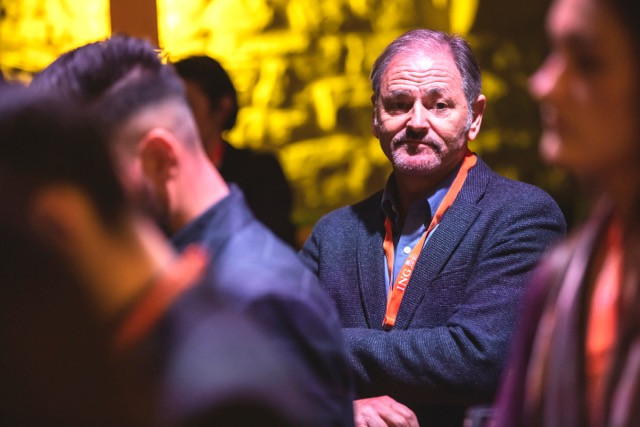Luxembourg-based media company VitalBriefing’s core business is providing clients from the financial services sector, but also across over 20 other industries, with tailor-made, curated news briefings that help guide their decision making. Co-founder and CEO David Schrieberg, a Pulitzer prize-winning journalist, says the company was lucky, in a way, during the coronavirus confinement because it is a completely digital operation. “We’ve been able to continue production as we always have.”
The company has a small core team, with three staff in Luxembourg and others “scattered in other countries”, and a network of 70 journalists around the world who work regularly under contract. One employee did take the special parental leave granted by the Luxembourg government while schools and crèches were closed, and the sales representative was placed on the temporary unemployment scheme at 80%. “I think it was the same for us as for everybody. How do you manage this brave new world? You keep your spirits up and adjust your personal life to the ‘new normal’, whatever that is.”
Nevertheless, Schrieberg admits the beginning of lockdown was “surreal”. “If we had thought about this a year ago, or even six months ago, we would have said ‘this is impossible’. I don’t think anybody envisioned the degree to which this was going to upend our lives.”
While VitalBriefing assured that existing customers continued to receive the services they had signed up for, and also asked if they needed anything special that would require an adjustment, Schrieberg said he fully expected not to attract any new business during the confinement period. “I’ve been surprised. We’re doing new business, both here and in the States, and I’m gratified that that’s happening. I think it makes sense, because we’re in the content business and people need good content. Even more so now than in the past.”
“Fake news is like rain, it just comes endlessly from the entire sky.”
Client expectations in going forward vary from industry to industry, from sector to sector, but Schrieberg says he thinks customers in the financial sector particularly will be looking for more and more credible and reliable content as they plan near and medium-term strategy. “Marketing departments, for instance, have seen their events calendars have vaporized. Webinars is one channel, but they are also looking at other channels and the kind of content that we deliver.” The flood of information, and the growth in fake news, means that demand for this sort of trusted, filtered and curated content is increasing. “Fake news is like rain, it just comes endlessly from the entire sky.”
But the company has also seen an increase in demand for its thought leadership content. “We emphasise valuable content that will help guide clients and prospects rather than sales or marketing materials.”
Boutique with global scope
Looking ahead as technology has become more and more integral to how businesses communicate, Schrieberg says that VitalBriefing has already been using some AI on its own custom-built content management system. “Our real valued add is the human aspect, at the end. Our professional expertise, our ability to tell stories in a way that’s meaningful to specific audiences. But on the search side, which is a significant part of our production process, we want to incorporate more AI and machine learning.” He also thinks that the uptake in technology like Zoom will have a lasting impact on the way companies conduct business meetings in the future.
“Uncertainty is the word that describes the single biggest preoccupation of everybody I talk to…”
Schrieberg describes VitalBriefing as a “boutique operation” that is global in scope. “We’d like to grow more in the US, and we’d like to keep growing in Benelux. Our plan has always been to grow. To have hundreds of journalists working for us. The tragedy of the collapse of mainstream media as a business model was a boon for us.” One of the concerns he had when he founded the company was being able to find enough journalists to fulfil its needs. But that turned out to be a non-problem. “There are so many great journalists out there, the tragedy being that many are losing jobs, and that’s accelerating in the pandemic.” This is borne out by the wealth and speed of response the company gets whenever it puts out a call seeking new journalist talent in a variety of specialities.
As for what is currently defining future strategy of decision makers more globally, Schrieberg is unequivocal. “Uncertainty is the word that describes the single biggest preoccupation of everybody I talk to--clients, friends in business, prospects.” The difficulty in planning ahead is accentuated by not knowing if there’s going to be another wave, what restrictions will be placed on travel, whether the recovery will be V-shaped or a U-shaped recovery or whether there will be a recovery at all.
“The other element is the need for global leadership, and I think that is missing right now both in business and in politics. So, I think a lot will depend on what happens in the US elections in November. That will have a big impact on global perspective.”
